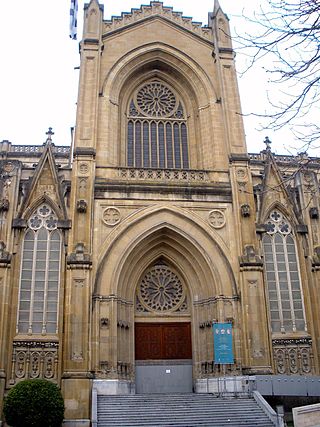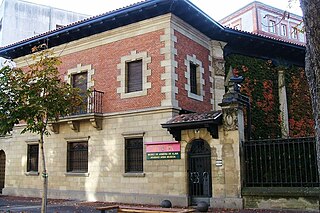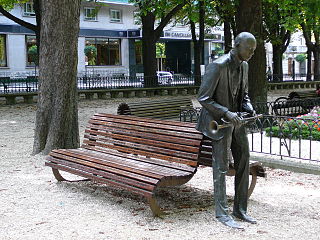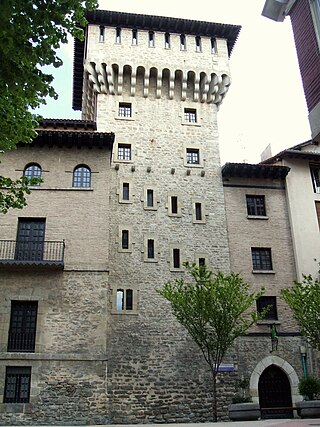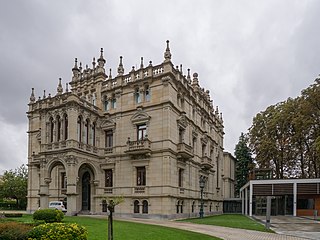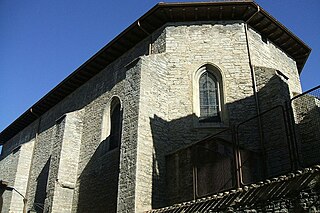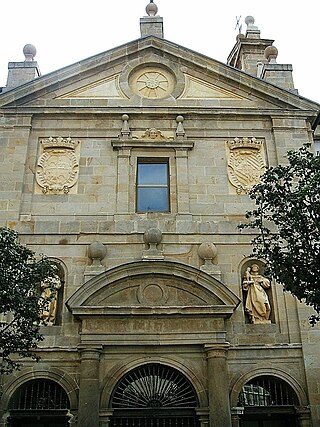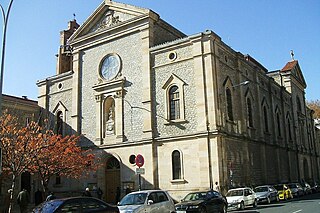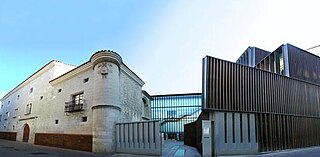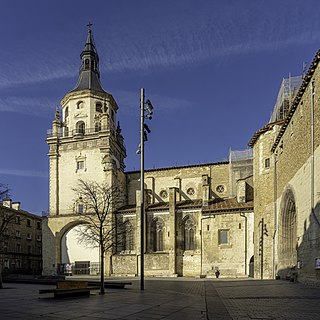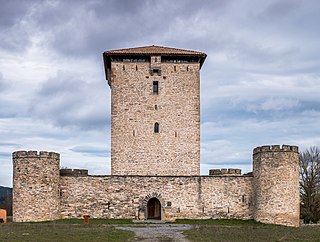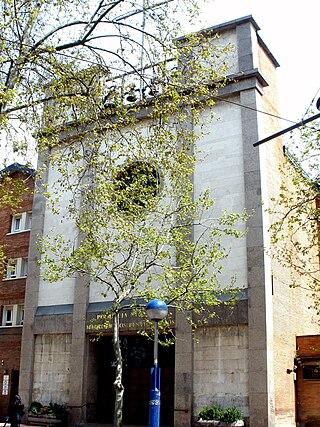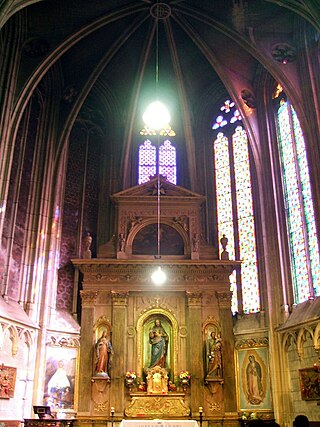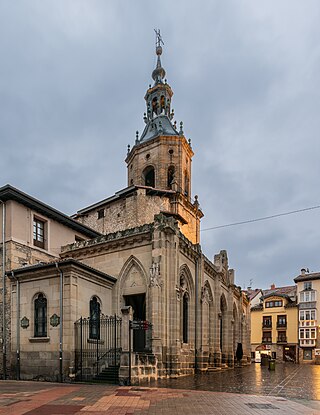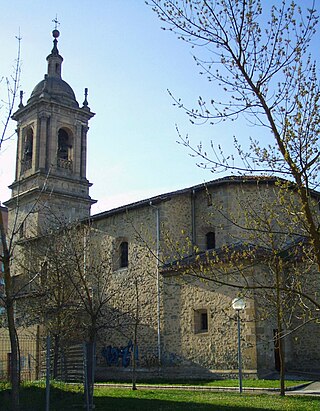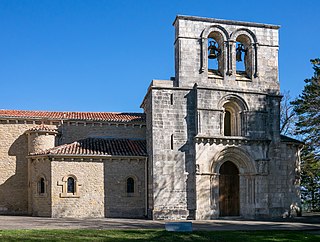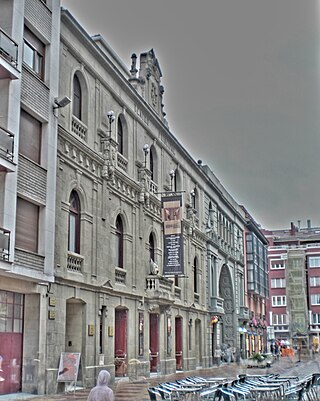20 Sights in Vitoria-Gasteiz, Spain (with Map and Images)
Legend
Premium Sights
Book tickets, guided tours and activities in Vitoria-Gasteiz.
Guided Free Walking Tours
Book free guided walking tours in Vitoria-Gasteiz.
Welcome to your journey through the most beautiful sights in Vitoria-Gasteiz, Spain! Whether you want to discover the city's historical treasures or experience its modern highlights, you'll find everything your heart desires here. Be inspired by our selection and plan your unforgettable adventure in Vitoria-Gasteiz. Dive into the diversity of this fascinating city and discover everything it has to offer.
Sightseeing Tours in Vitoria-GasteizActivities in Vitoria-Gasteiz1. Diocesan Museum of Sacred Art
The Diocesan Museum of Sacred Art of Álava is located in the ambulatory space of the Cathedral of Mary Immaculate in the city of Vitoria, Álava. Its access is through the south door of the Cathedral's transept, facing Monseñor Cadena y Eleta Street and Florida Park. Since July 2022 it has a new official website with useful information, easy to access, with historical and didactic data thanks to very intuitive navigation.
2. Armoury Museum
The Armory Museum of Álava, located on the Paseo de Fray Francisco and adjacent to the Palace of Ajuria Enea in the city of Vitoria (Álava) Spain, exhibits weapons, uniforms and various objects related to the war activities of various periods and cultures, from Prehistory to the beginning of the twentieth century. Of its sections, the one dedicated to the Battle of Vitoria in 1813, in the context of the Spanish War of Independence, is particularly interesting.
3. Florida parkea/Parque de la Florida
La Florida is a park in Vitoria-Gasteiz, Álava, Spain. It was built between 1820 and 1855 in neoclassical style by the architects Angel Chavez, Juan De Velasco, Ramón Ortés De Velasco and Manuel Arana. The birth of Florida is dated 1820 when they built the existing ring that surrounds the music kiosk. For the actual 32,454 square meters land used the former convent of Santa Clara, and as much as planners have insisted later, there is nothing similar in the new green spaces in Vitoria.
4. Natur Zientzien museoa/Museo de Ciencias Naturales
The Museum of Natural Sciences of Álava is located in the Torre de Doña Ochanda, a medieval building in the historic center of the city of Vitoria, Basque Country, Spain. It exhibits important geological, botanical and zoological collections from multiple sources.
5. Arte Ederren museoa/Museo de Bellas Artes
The Museum of Fine Arts of Álava is located in Vitoria-Gasteiz, the capital of the Basque Country, Spain. The museum is dedicated to Spanish art from the 18th to the 20th century, and particularly to Basque art from the 1850–1950 period. Opened in 1942, it is located at the Augustin Zulueta Palace.
6. Convento de Santa Cruz
The convent of Santa Cruz is located between Calle de la Pintorería, Calle de San Vicente de Paúl and the canton of Santa María, within the historic centre of the Spanish city of Vitoria. Its architecture has Gothic-Renaissance characteristics and since its foundation in the sixteenth century it has been inhabited without interruption by a community of cloistered Dominican nuns, being the oldest preserved monastery in Vitoria and with religious life.
7. San Antonio komentua/Convento de San Antonio
The convent of San Antonio, whose true invocation is of La Purísima Concepción, is located in the pedestrian Plaza del General Loma in the Spanish city of Vitoria. Built in the seventeenth century in classicist baroque style, it is inhabited by a community of Poor Clare nuns, the church functioning as a parish of regular worship.
8. El Carmen eliza/Iglesia del Carmen
The Church of El Carmen is a Catholic temple integrated into the Convent of the Discalced Carmelite Fathers of Vitoria. Built in modern neoclassical style and consecrated in 1900, it is located on Manuel Iradier Street in the capital of Alava.
9. Bibat
The Álava Fournier Museum of Playing Cards is a playing card museum located in Vitoria, Spain. It originated as a private collection in 1916 by Félix Alfaro Fournier, the grandson of the founder of Naipes Heraclio Fournier. It was bought by the government of Álava and was declared Bien de Interés Cultural in 1984. In 1994, it moved to its current location in the Bendaña palace which it shares with the Álava Museum of Archaeology.
10. Catedral de Santa María / Santa Maria Katedrala
The Cathedral of Santa María de Vitoria is a Gothic-style, Roman Catholic cathedral located in Vitoria-Gasteiz, Basque country, Spain. It was declared Bien de Interés Cultural in 1931 and a World Heritage Site in 2015.
11. Mendoza dorretxea / Torre de Mendoza
The Tower of Mendoza is a tower located in Vitoria-Gasteiz, Spain. It was declared Bien de Interés Cultural in 1984. The tower is strategically located between the roads of Old Castile and the Ebro river.
12. Babesgabetuen eliza / Iglesia de Desamparados
The church of Nuestra Señora de los Desamparados is a Catholic parish church in the city of Vitoria. It is a modern construction, part of whose interior furniture comes from the demolished church of the town of Galarreta in Álava.
Wikipedia: Iglesia de Nuestra Señora de los Desamparados (Vitoria) (ES)
13. Santa Maria eliza/Iglesia de Santa María
The Church of Santa María is a Catholic parish church in Vitoria built in the Gothic style in the fourteenth century and annexed to the Cathedral of Santa María, or Old Cathedral, of which it was originally the Chapel of Santiago.
14. Andre Mariaren Jasokundearen eliza
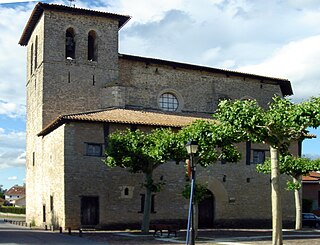
The church of Nuestra Señora de la Asunción in Lasarte, Vitoria is an advanced Gothic building that has ribbed vaults. In the nineteenth century, the walls were mastered, and a strong denticulated cornice was built, which rests on pilasters with composite capitals.
Wikipedia: Iglesia de Nuestra Señora de la Asunción (Lasarte) (ES)
15. San Pedro eliza/Iglesia de San Pedro
The Church of San Pedro Apóstol is a medieval church located in Vitoria-Gasteiz, Spain. It was built in the late 13th and early 14th centuries as a fortress church due to its location next to the city walls. The construction of the current tower started in 1708, while the southern portico was added in 1897.
Wikipedia: Church of San Pedro Apóstol, Vitoria-Gasteiz (EN)
16. Catedral de María Inmaculada / Maria Sortzez Garbiaren katedrala
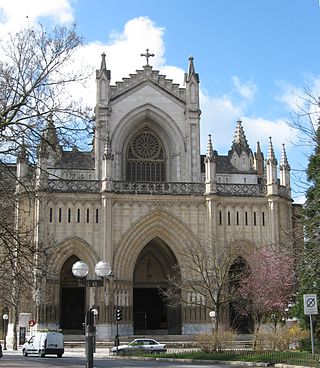
The Cathedral of María Inmaculada de Vitoria (Basque: Maria Sortzez Garbiaren katedrala, Spanish: Catedral de María Inmaculada de Vitoria, usually known as "The new Cathedral" is a Neogothic-style, Roman Catholic cathedral located in Vitoria-Gasteiz, Basque country, Spain. It was built in the first half of the 20th century.
17. Arriagako eliza/Iglesia de Arriaga
The Church of San Vicente de Arriaga is a Catholic parish church located in the city of Vitoria. It was built between the fifteenth and sixteenth centuries in the Gothic-Renaissance style, although externally neoclassical architecture predominates, the result of important additions and reforms in the eighteenth and nineteenth centuries.
18. Santuario de Estibaliz
The Sanctuary of Nuestra Señora de Estíbaliz is a sanctuary located in Argandoña within the municipality of Vitoria-Gasteiz, Álava, Spain. It is surrounded with green forests and it has the view of the entire province as it is located in a small hill 9 km away from the city of Vitoria-Gasteiz. Here stands the patroness of Álava. It was declared Bien de Interés Cultural in 1931.
19. Armentiako basilika / Basilica de Armentia
The Basilica of San Prudencio de Armentia is a basilica located in Armentia, Vitoria-Gasteiz, Basque Country, Spain. It was built in the 12th-century in Romanesque style. The basilica lies on the Camino de Santiago.
20. Teatro Principal Antzokia
The Teatro Principal is a theatre located at 29 San Prudencio Street, in Vitoria. It was devised by Cesáreo Iradier, who was inspired by the Teatro de la Zarzuela in Madrid. Its inauguration was in 1918 with the name of Nuevo Teatro de Vitoria. The opening of the theatre was possible thanks to the contributions of the citizens of Vitoria with the purchase of shares. In 1961 it was renamed as it is today, in memory of the old theatrical building that had been in the same place between 1822 and 1914. For many decades it was used as a cinema. In 1992 it was renovated by the Basque Government, the Provincial Council of Álava and the City Council of Vitoria.
Share
Disclaimer Please be aware of your surroundings and do not enter private property. We are not liable for any damages that occur during the tours.
